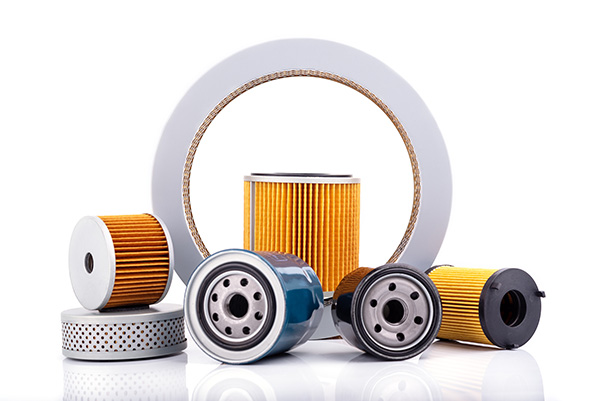
In the world of automotive maintenance, filters are often the unsung heroes that keep your vehicle running smoothly. These crucial components ensure that your engine and other systems stay clean and efficient. But what are the most important filters in your car, and why should you pay attention to them? Let's dive in and explore the vital roles these filters play.
1. Engine Oil Filter
The engine oil filter is arguably the most critical filter in your car. Its primary function is to remove contaminants from the engine oil, which lubricates the engine's moving parts. Clean oil is essential for reducing friction, minimizing wear and tear, and preventing engine damage.
Why It Matters
Over time, engine oil accumulates dirt, debris, and metal particles that can cause significant harm if not filtered out. A clogged or dirty oil filter can reduce oil flow, leading to increased engine wear and potential failure.
Maintenance Tips
To keep your engine running smoothly, replace the oil filter with every oil change. Most manufacturers recommend changing the oil and oil filter every 3,000 to 5,000 miles, but it's best to consult your vehicle's owner's manual for specific intervals.
2. Air Filter
The air filter is another essential component responsible for cleaning the air that enters the engine. It prevents dust, dirt, and other debris from contaminating the engine's internal components.
Why It Matters
A clean air filter ensures that your engine receives the proper amount of air for efficient combustion. A clogged air filter can reduce engine performance, increase fuel consumption, and lead to higher emissions.
Maintenance Tips
Check your air filter regularly and replace it according to your manufacturer's recommendations, typically every 12,000 to 15,000 miles. If you drive in dusty or polluted areas, you might need to replace it more frequently.
3. Fuel Filter
The fuel filter plays a crucial role in keeping your fuel system clean by filtering out impurities and contaminants from the fuel before they reach the engine.
Why It Matters
A clogged fuel filter can restrict fuel flow, leading to poor engine performance, difficulty starting, and potential damage to the fuel injectors. Clean fuel is vital for efficient engine operation and longevity.
Maintenance Tips
Fuel filter replacement intervals vary by vehicle, but generally, it's a good idea to replace it every 20,000 to 40,000 miles. Always refer to your vehicle's owner's manual for specific guidance.
4. Cabin Air Filter
While not critical to the engine's performance, the cabin air filter is essential for maintaining a clean and healthy environment inside your car. It filters the air that enters the passenger compartment through the heating, ventilation, and air conditioning (HVAC) system.
Why It Matters
A clean cabin air filter improves air quality by trapping dust, pollen, and other airborne particles. A clogged filter can reduce airflow, making your HVAC system work harder and potentially causing unpleasant odors.
Maintenance Tips
Replace the cabin air filter every 10,000 to 20,000 miles or according to the manufacturer's recommendations. If you suffer from allergies or drive in heavily polluted areas, consider replacing it more frequently.
5. Transmission Filter
The transmission filter captures contaminants from the transmission fluid, which lubricates and cools the transmission components.
Why It Matters
Clean transmission fluid is crucial for smooth shifting and preventing wear on transmission parts. A dirty or clogged transmission filter can lead to shifting issues, overheating, and potential transmission failure.
Maintenance Tips
Transmission filter replacement intervals vary widely depending on the vehicle and driving conditions. Generally, replacing the transmission filter every 30,000 to 60,000 miles is recommended. Always consult your owner's manual for the best practice.
Don't let dirty filters drag your car down. Visit Oceanworks Berkeley for a comprehensive filter replacement service. Book now and drive with confidence!